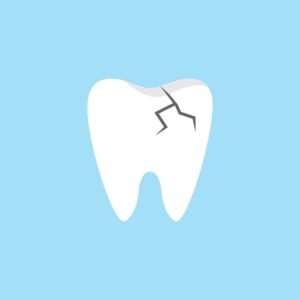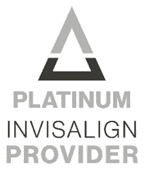Do you feel intense pain in your tooth? This can stem from a crack in your tooth, also known as a fracture. Sometimes you can see the break in your tooth, but in many cases, the fracture might be too small and thin to view with the naked eye.
Tooth pain of any kind is abnormal and warrants urgent evaluation and treatment from your dentist. You should not ignore uncomfortable or unbearable symptoms in your smile. Instead, call your dentist as soon as you can.
You can feel more confident in taking action when you know more about this damage that can occur to your tooth. Read on to find responses from your dentist to frequently asked questions regarding the treatment and prevention of this type of dental injury.

Can a Fractured Tooth Heal on Its Own?
If you have ever broken a bone, you might remember that a bone fracture will eventually repair itself as new tissue grows to fix the damage. Teeth cannot do this because tooth enamel, the outer layer of the tooth, does not have blood vessels that allow it to heal itself.
You will need intervention from a dentist to repair a broken tooth. If you do not seek dental treatment, the injury will deepen and worsen, causing more extensive damage to the tooth that might not be repaired easily. It could also have a higher risk of infection and other serious dental problems.
What Treatment Will I Need to Fix a Tooth Fracture?
A dentist can provide several options when treating a tooth fracture. They will want to seal and cover the damage to the enamel, which they may do using a dental crown. This ceramic cap will shield the entire tooth and seal into place with dental cement.
This stops the injury from worsening while also replacing damaged enamel so that the tooth can see restored appearance and function once again. Smaller cracks in a tooth might only need bonding or another cosmetic dental treatment.
However, if the crack in the tooth reaches below the gumline, then these dental solutions cannot access the injury. You will likely need an extraction of the damaged tooth to protect the rest of your smile. In this case, you can discuss tooth replacement options like dental implants.
How Can I Prevent Tooth Breakage?
To avoid cracking or otherwise injuring your tooth, pay attention to your oral habits. Do not bite down on hard items that could exert high pressure on your tooth if not needed. Examples include the end of a pen, ice, or fingernails.
Your diet could also harm your dental structure. Practice caution when chewing hard or sticky food items like corn on the cob or popcorn.
Make sure you adhere to good preventative oral health care too to ensure your teeth stay strong enough to resist damage. This includes attending regular dental check-ups and practicing proper oral hygiene. If you notice changes or discomfort in your smile, do not delay contacting your dentist.

